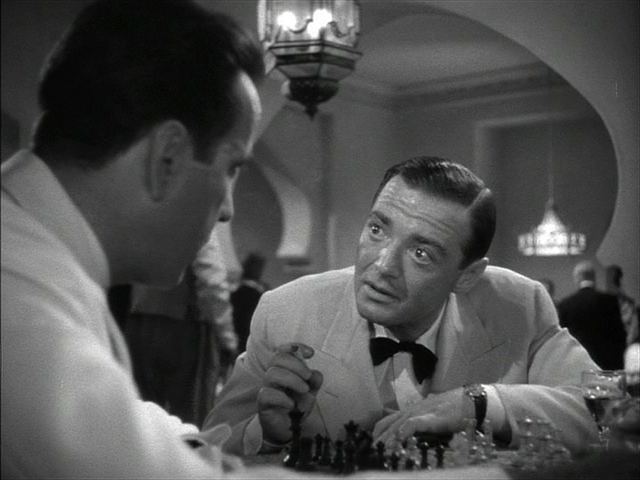“I don’t mind a parasite,” Rick Blaine says to Ugarte in Casablanca. “I object to a cut-rate one.”
The charge that Mark Driscoll plagiarized a big chunk of Peter Jones’ Pagan Lies, Gospel Truth: Can You Tell the Difference? in his own latest book seems both well-substantiated and quite serious. But just as serious is this: The passage in question from Jones’ book is awful.
Here’s part of Jones’ supposed summary of what “Pagans” (i.e., everyone who is not a real, true Christian) believe:
Animals/Humans
What child does not love his pet? Animals hold a special place in our life and the nature in which we live is beautiful and striking. Monists rightly realize that humans often mistreat animals and destroy nature. They offer a salutary program: eliminate the distinctions between the animal, plant and human life, since everything is divine. Witches take the deification of nature to an extreme, by adopting familiars, pets that help them communicate with the spirit world.
Right/Wrong
On the monistic circle, all points are relative. If you realize that your own evil is not really evil, you will know freedom. I once met a long-time church member who discovered A Course in Miracles. In it he read that sin did not exist and that guilt was an illusion. He testified to “walking on air.” Many people classified as sinful (such as pro-abortionists and homosexuals) can find a guilt-free place in society. The spiritual and mystical experience of monism frees you from a guilty conscience because your own evil is good.
There’s more, much more, of the same at the link above to the full passage from Jones. The only thing larger than the vast ignorance Peter Jones displays here is Jones’ serene certainty that he already knows everything he’ll ever need to know and that there’s nothing, ever, that he might need to learn from or about the real people he’s caricaturing and dismissing.
Jones comes across, in other words, as kind of a dick — spared from complete and total dickhood only by the pity that accompanies the suspicion that he’s perhaps just not very bright. Yet whether or not he fully understands what he’s writing — which, itself, seems to be a banal rehashing of thrice-copied ideas half-grasped from some fourth-rate imitation Francis Schaeffer* tract he never cites either, but which he perceived as “deep” because it used the word “worldview” — doesn’t change the fact that Jones is, in fact and in deed, being a huge jerk. He’s slandering people he can’t be bothered to understand. He’s slandering people he hasn’t bothered to read or to listen to.
That’s a sin. Peter Jones seems to feel free to sin in this way because he’s convinced himself that his own evil is not really evil and thus he has come to find what he imagines is his guilt-free place in society. The defective, dormant conscience he attributes to all these Other People in his book initially struck me as unreal, yet Jones himself illustrates that it is a possibility.
Or maybe Jones feels free to sin in this way because “Pagans” and outsiders are fair game and RTCs are allowed to display their virtue by lying about such people with impunity. Whatever. It’s wrong. It’s bad. Christians need to stop writing books like that and to stop reading them.
Driscoll seems to have borrowed heavily from those very paragraphs. But if he had cited Jones in his book, he would have been doing something Jones himself never does — citing others by name and referencing actual published words. Driscoll’s plagiarism, in other words, seems to consist of cloning Jones’ strawman. That’s bad, but Jones’ misattribution strikes me as a more malicious problem than Driscoll’s lazy lack of attribution.
Jones’ passage is ignorantly dismissive and dismissively ignorant. It wasn’t written to help readers understand, only to convince those readers to reject others by misrepresenting them. Jones’ book is not worth reading, let alone plagiarizing.
So, yes, if Driscoll plagiarized this passage, then he’s got a plagiarism problem. But he’s also got a big problem in terms of the source material he regards as worth plagiarizing. If you’re going to steal, steal the good stuff.**
– – – – – – – – – – – – –
* I was going to use that great line here about Schaeffer being a “dumb person’s idea of a smart person,” but since this is post partly about plagiarism, and since I’m not sure who first said that, I wouldn’t want to quote it without proper citation. James Fallows has traced the line back to at least 1936, when Emily Bowen described Aldous Huxley as a “perpetual clever nephew who can be relied on to flutter the lunch-party. … He is at once the truly clever person and the stupid person’s idea of the clever person.”
** Woody Allen said, “It you’re going to steal, steal from the best.” But Woody himself said that line was from Martha Graham.













